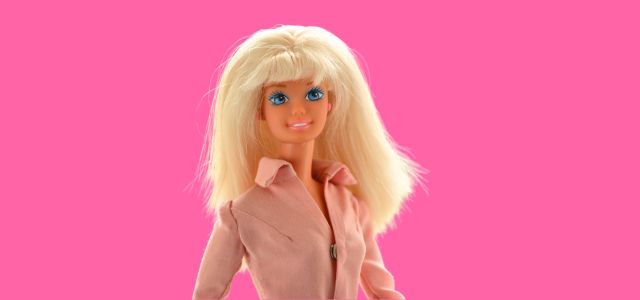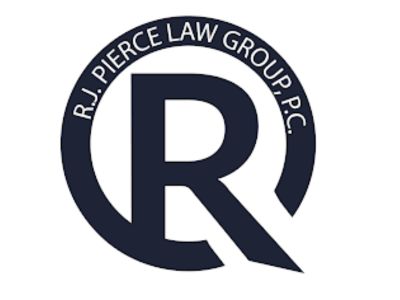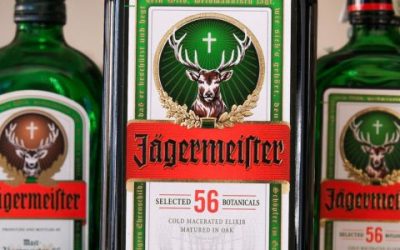Amanda Kinsey, the owner of Fayetteville-based ‘Amanda’s BarBeeQue,’ has faced trademark opposition from Mattel, the company behind the iconic Barbie brand. After years of operating her business without issue, Kinsey recently filed to register her trademark, only to receive a 45-page opposition from Mattel. The toy giant argues that her business name, along with the use of pink in her branding, is too similar to Barbie and could confuse consumers.
Kinsey, who started her business in 2017 as a tribute to her late grandmother, says the name ‘BarBeeQue’ reflects her grandmother’s unique spelling of barbeque and that her use of pink represents breast cancer awareness. Despite these personal reasons behind her brand, Mattel’s opposition—one of 11 trademark oppositions filed by the company so far in 2024—shows the challenges that small business owners can face when their authentic branding conflicts with existing trademarks.
The importance of authentic branding in business
Kinsey’s situation raises important questions about what it means to build an authentic brand and how that branding can sometimes unintentionally conflict with established trademarks. For many entrepreneurs like Kinsey, a brand is more than a business decision; it’s a deeply personal reflection of values, history, and identity. The name ‘Amanda’s BarBeeQue’ is rooted in family tradition, honoring her grandmother’s memory and the values of love and community that Kinsey brings to her business.
However, while authenticity in branding is crucial for building a loyal customer base, it does not exempt small business owners from potential trademark issues. The challenge arises when a brand overlaps with a globally recognized one like Barbie. From a legal standpoint, even the most genuine intentions behind a brand don’t negate the potential for consumer confusion, which is a core concern of trademark law. Mattel’s opposition highlights the need for entrepreneurs to consider how their branding might be perceived in the broader marketplace, especially when it involves elements that are similar to well-known trademarks.
The line between authentic branding and trademark infringement
Kinsey’s choice of ‘BarBeeQue’ may seem like an innocent and meaningful homage, but Mattel’s opposition signals that even well-intentioned branding decisions must consider trademark implications. Trademark law is designed to protect consumers from confusion and prevent dilution of brand identity, which means that even a heartfelt name like ‘Amanda’s BarBeeQue’ can raise legal concerns if it closely resembles a famous brand.
In this case, Mattel argues that the similarities in name and color scheme could cause consumers to mistakenly associate Kinsey’s business with the Barbie brand. Despite the personal nature of Kinsey’s brand, Mattel is defending its intellectual property to prevent any potential confusion that could arise from these similarities. The company’s legal action underscores the importance of maintaining a clear distinction between new brands and established trademarks in the marketplace.
Balancing authentic branding and trademark protection
Kinsey’s story also dispels the notion that large corporations are inherently adversarial when it comes to creative entrepreneurs. Mattel has stated that it “proudly supports entrepreneurs and inventors” and wishes Kinsey success in her business. However, it also has a responsibility to protect its trademarks from names that have similar pronunciations or visual elements, as these can dilute its brand or mislead consumers.
Trademark law is not necessarily designed to stifle creativity or authenticity, but rather to ensure that consumers can distinguish between different products and brands. In cases like this, small business owners can benefit from working with trademark attorneys who can help them navigate these legal complexities. By understanding the nuances of trademark law, entrepreneurs can ensure that their authentic branding does not unintentionally infringe on established trademarks, allowing them to grow their businesses while respecting the rights of other brand owners.
Finding a path forward
Kinsey’s openness to working with Mattel to find a solution shows that cooperation can be a viable path forward for both parties. She has built a brand that reflects her personal story, and while the legal opposition from Mattel presents a challenge, it also offers an opportunity to refine her branding in a way that preserves its authenticity without infringing on Barbie’s trademarks.
Ultimately, the case serves as a reminder for small business owners and entrepreneurs that building an authentic brand is essential, but so is understanding the legal landscape of trademarks. Working with a skilled trademark attorney can help business owners like Kinsey navigate these challenges, explore alternatives, and even potentially open doors for collaboration with larger brands. Through careful planning and trademark expertise, entrepreneurs can balance authenticity with legal protection, ensuring the success and sustainability of their brands in the marketplace.

Written by Oscar Trejo
Lead Trademark Attorney, R.J. Pierce Law Group
You may also like…
UEFA partners with Alliance for Creativity and Entertainment to enhance global anti-piracy strategy
October 21, 2025 - The Union of European Football Associations (UEFA) has officially joined the Alliance for...
EUIPO and UANIPIO welcome the integration of Ukraine’s trademarks into TMview
The European Union Intellectual Property Office (EUIPO) and the Ukrainian National Office for Intellectual Property...
Jägermeister succeeds in opposing the EU trademark application Alten Kräuterfrau for alcoholic beverages
Mast-Jägermeister SE filed an opposition on the grounds of Article 8(1)(b) – likelihood of confusion between the signs...
Contact us to write for out Newsletter














